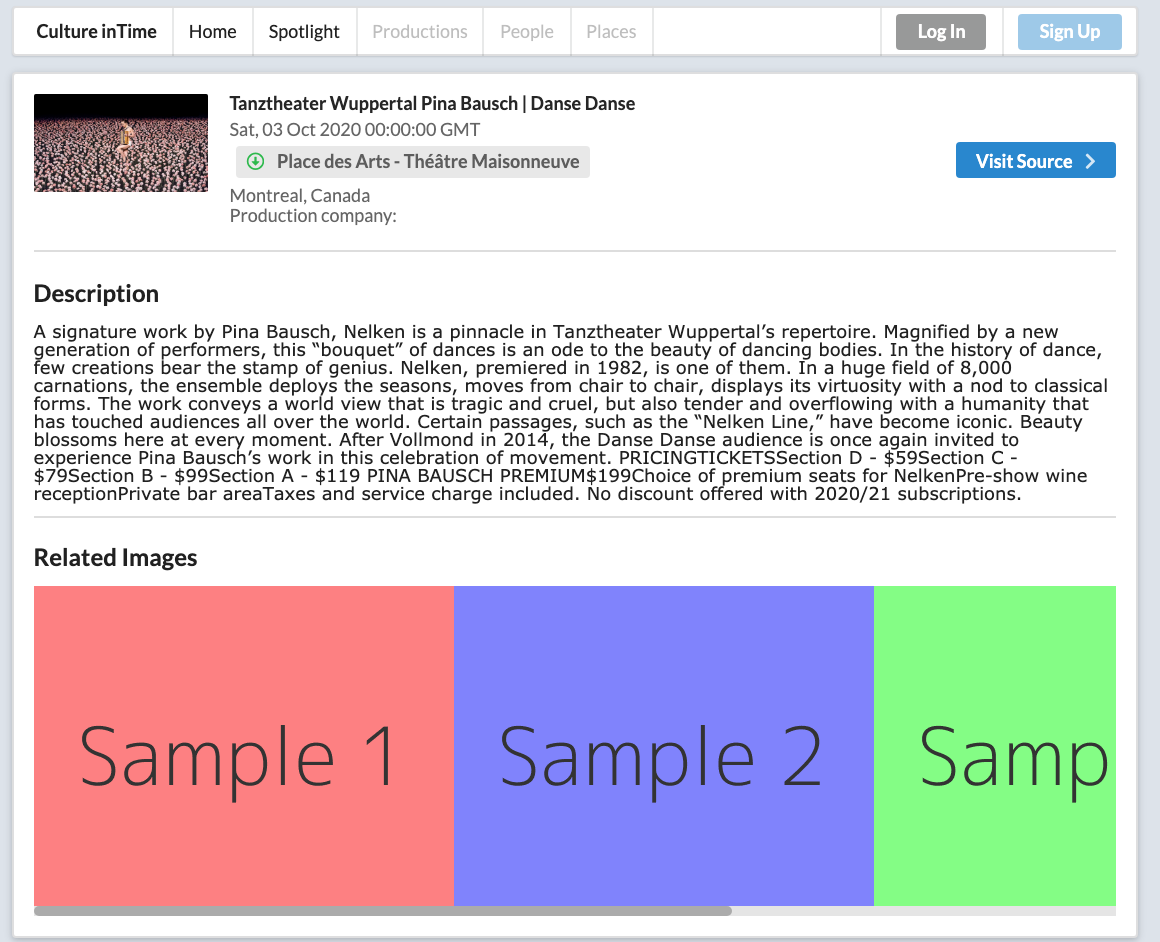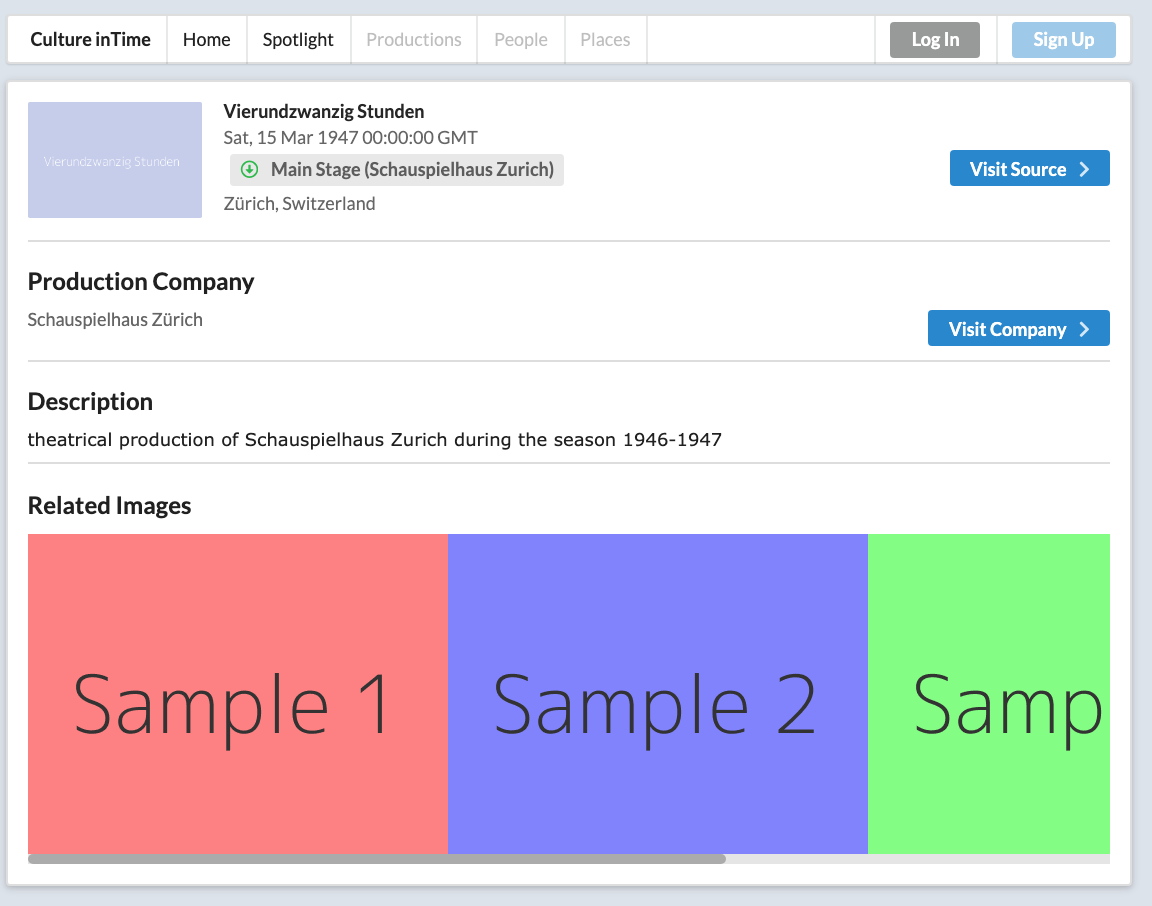Challenge view
Back to ProjectCulture in Time
Cultural Calendar using existing LOD on past and future productions, venues, artists, and works.
GLAMhack 2020 - Culture inTime
Simple event calendar for public viewing written in Rails, SPARQL and Semantic UI (web interface platform). Using existing linked open data (LOD) on productions & events, locations & venues, and dates to feed contemporary and historical data into this calendar. Coming soon: LOD on artists and works.
Go to https://culture-intime.herokuapp.com/ and view calendar

Data Sources
Building on existing data sources:
- Dataset already integrated into Wikidata: data from Schauspielehaus, Zurich. For reference see: https://www.wikidata.org/wiki/Wikidata:WikiProject_Performing_arts/Reports/Ingesting_Production_Databases_of_the_Performing_Arts
- Dataset from Artsdata.ca: pan-Canadian knowledge graph for the performing arts
Background
This 2020 GlamHack Challenge resulted from the discussions we had earlier this week during the workshops related to performing arts data and our goal is to create a Linked Open Data Ecosystem for the Performing Arts.
Some of us have been working on this for years, focusing mostly on data cleansing and data publication. Now, the time has come to shift our focus towards creating concrete applications that consume data from different sources. This will allow us to demonstrate the power of linked data and to start providing value to users. At the same time, it will allow us to tackle issues related to data modelling and data federation based on concrete use cases.
“Culture InTime” is one such application. It is a kind of universal cultural calendar, which allows us to put the Spotlight on areas and timespans where coherent sets of data have already been published as linked data. At the same time, the app fetches data from living data sources on the fly. And as more performing arts data is being added to these data sources, they will automatically show up. It can:
- Provide a robust listing of arts and cultural events, both historical and current. Audiences are able to search for things they are interested in, learn more about performing arts productions and events, find new interests, et cetera.
- Reduce duplication of work in area of data entry
The code is a simple as possible to demonstrate the potential of using LOD (structured data) to create a calendar for arts and cultural events that is generated from data in Wikidata and the Artsdata.ca knowledge graph.
The user interface is designed to allow visitors to search for events. They can:
- Use the Spotlight feature to quickly view events based on the following search criteria: name of city and predetermined date range.
- Use Time Period buttons to search a time period (international).
- Use a Search field to enter a search using the following criteria: name of production, theatre, city, or country.
- Select an image from a gallery to find related information.
- Visit the source of the data to learn more (in the example of an Artsdata.ca event, Click Visit Event Webpage to be redirected to the Art Organization website.
Note: Currently when you enter a location, data only exists for Switzerland and Canada (country), Zurich, Montreal/Laval/Toronto/Vancouver/Fredericton and some small villages in Quebec.
Search results list events sorted by date.
Challenges
Data is modelled differently in Wikidata, Artsdata, and even between projects within the same database. Data has very few images.
More UI Images
Spotlight Page

Event Details page - Montreal

Production Details page - Zurich

Art exhibitions, 1945-2020
GLAMhack 2020
Data Entry Wizard

